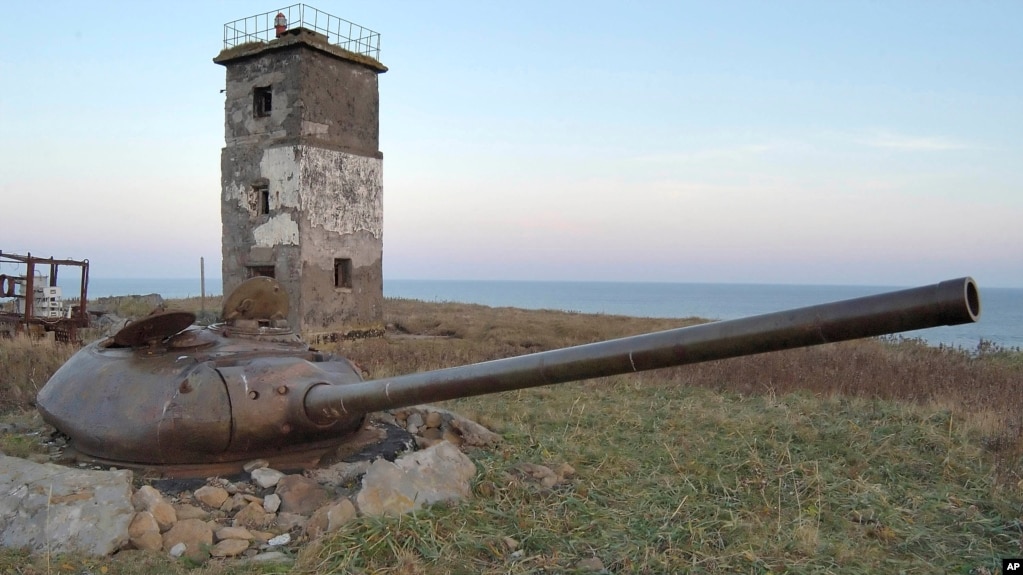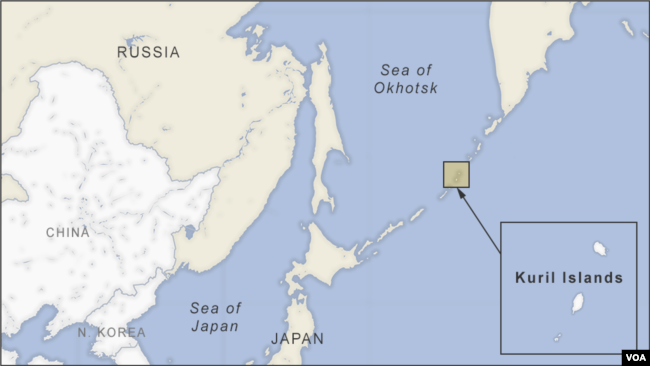
Rise Of ‘Militarism’ In Japan – OpEd
Japan’s traditional constitution calls for the armed forces to forever abandon the principle of war and formulate foreign policy. The country can no longer maintain that tradition. On 12 December 2022, Japan’s ruling party coalition, composed of 90 percent of Liberal Democratic Party MPs and 10 percent of Komeito Party MPs, agreed on a change in national security strategy. Along with common security issues, defense issues are also identified and guidelines for military development are determined in the next 10 years.
The current decisions are inconsistent with Article 9 of the Constitution enacted in 1947. It says – ‘Japan has forever abandoned the use of armed forces to solve foreign policy problems.’ Without resolving or changing this conflict, Japan has already emerged as a major military power and a large contingent of superpower military personnel is stationed in Japan. Shinzo Abe attempted to amend the clause by proposing to add a third clause to the ninth article, known as the ‘Abe Amendment’. Abe’s introduction of the amendment only makes a mockery of the founding document of modern Japan. Many want to drop the entire clause. But to change such a fundamental document, the Japanese consider themselves treacherous.
Anti-missile units have been promised in the present Defense Force SDF. According to Department of Defense data, there are about 56,000 US military personnel in Japan, which is more than any other country. Article 5 of the Constitution states that the United States must defend Japan if a third party attacks it. Article 6 expressly gives the United States the right to establish military bases on Japanese soil. As a result, the Americans are occupying the large island of Okinawa. The island is now claimed by China. There are 32 small and large bases and 48 training centers operating in Japan. Despite a strong alliance based on common values, many Japanese feel that the Japanese and Americans are as mixed as oil and water. As in Yugoslavia, the Serbs and Bosnians were tried by Marshal Titu to mix them together. According to the published security strategy report – 500 missiles will be purchased by 2027. During this time they will be made with own technology.
The key question is how to determine how the Japanese government will pay for the defense costs of its planned military upgrades. This is not possible unless the current army spending and defense budget are doubled. This will cost Japan an additional $300 billion.
Kisida’s predecessor, Suga Kovit, effectively ended the Olympic Games amid the recession that followed. If Japan is to spend a lot of money on this urgent military need, it must gradually bring it down to 2 percent of the country’s annual GDP. In the post-war period, Japan’s defense spending was below 1 percent. Japan’s economy is the third largest in the world. When Prime Minister Kishida explained the issue to the people, the opposition pointed out to him, ‘You can explain until you are blue in the face.’
How will the process of radical change in Japan’s defense policy actually unfold, although military change is a commonplace in today’s world? China believes that by strengthening Japan militarily, the United States will use it against its country and use Taiwan. The late Abe was known for his pro-Taiwan stance. After resigning, Abe said in late 2021, “Taiwan’s emergency is an emergency for Japan and an emergency for the Japan-US alliance.”
Post-assassination sympathies for Abe are key to whether the rise of right-wing forces will strengthen Japan and whether Article 9 of the post-war constitution is being amended. Many in Japan worry that the Kishida administration will seize the opportunity to fulfill Abe’s legacy and revive Japanese militarism. Most parliamentarians want the rise of militarism.
The question now is how much political success Fumio Kishida will be able to achieve in the next three years after his recent election victory. Kisida has a strong interest in denuclearization and establishing order in the Indo-Pacific region. Kishida has enough motivation to pick up the baton of Abe’s dream. Surprisingly, the biggest hurdle will be building consensus within the ruling party, not with the opposition.
Changing the constitution meant revising the Peace Constitution that the United States drafted for Japan after World War II, specifically Article 9, which stated that “the Japanese people forever renounce war as a sovereign right of the nation and the threat or use of force as a means of settling international disputes.” ‘Land, sea and air forces, as well as other war capabilities, will never be maintained’ and ‘the right of war of states will not be recognized.’
Japan will not be prevented from enacting new martial law without changing the constitution; It won’t be long between amending the constitution and Japan returning to its old militarized ways. Indeed, amending the Constitution has a greater symbolic meaning. Japan’s right-wingers believe the change will signal Japan’s recovery from war defeat.
Taiwanese commentator Julian Cuore said the real key is whether the US wants to “free the tiger from its cage.” The US is still the deciding factor. Sino-US relations as well as Sino-Japanese relations have changed during Abe’s time in power. After US President Joe Biden took office, Japan’s position against China became more clear and Japan’s status as a US ally increased.
China no longer sees Japan as an equal opponent. After Abe’s death, there are no more ‘backseat drivers’ to keep the Kishida administration in check. It seems that the plan to amend the constitution will be implemented without any haste. Japan’s pro-US and pro-Taiwan positions are not changing in any way. Chinese netizens rather said, if Japan goes back to militarization, China will have the opportunity to erase a century of shame.
Kisida completed his visit to Washington on January 13 this year. He met with Biden. Now Japan-US relations are at an all-time high. Kishida’s visit to the United States was followed by visits to five G-7 countries, France, Italy, the United Kingdom and Canada. Japan is the current president of the G-7 group. Biden praised Kishida as “a true leader and a true friend.”
In March 1990, Major General Henry C. Stackpole, commander of US Marine Corps bases in Japan, stated that American troops must remain in Japan; Because no one wants a resurgence of World War II Japan.’ He thinks it’s better to keep the wolves locked up!
Johnston, Japan Chair of the Washington Center for Strategic and International Studies, said, “The tide of reluctance has shifted and the United States is welcoming Japan’s new capabilities. Japan will now play an important strategic role and proxy for the United States in maintaining stability in East Asia due to China’s growing military activity.” thinks
In the post-World War II period, the Japanese Self-Defense Force, the JSDF, served only as a ‘shield’ engaged in defense, while US forces envisioned it as a ‘spear’ for retaliatory attacks. Reflecting on this issue, Japan’s longest-serving prime minister, the late Shinzo Abe, was able to lay the groundwork for a plan to acquire a hostile strike capability for a full week at the end of his second term as prime minister, which has come to be known as ‘Abe’s counter-strike capability’, a doctrine the Kishida administration is honoring. . The US is happy about it, but China is against it.
Militarism and Japan’s role as G-7 president have emerged as three major problems. Can Kishida solve them? One of them is the ongoing Russia-Ukraine war. As a friend, Ukraine should show support and Russia should show strictness. Nevertheless, Japan is still getting a lot of help in Russia’s oil and gas development projects Sakhalin-1 and Sakhalin-2. Billions of yen are pouring into Russia’s economic pipeline every day. Japan depends on the Middle East for about 90 percent of its crude oil imports. Sakhalin-1, on the other hand, is a valuable alternative source. Sakhalin-2 supplies about 9 percent of Japan’s liquefied natural gas, LNG imports, and about 3 percent of its total electricity generation, which is essential for Japan’s energy security. Apart from this, the harsh reality is that Hiroshima Gas Co. Ltd., located in Kishidar’s own constituency, is getting almost half of its LNG from Sakhalin-2. But as things stand now, Kishida may not keep Zelensky’s invitation to visit Ukraine if Biden doesn’t push. Anytime Putin plays Europe-like ‘gas line diplomacy’ with Japan, it will become difficult for the US to supply gas from such a distance.
Japan only supplies Ukraine with bullet-proof vests, helmets and other protective equipment. Japanese aid to Ukraine in 2022 is the lowest among the G-7, with a total value of 600 million euros, just 1.2 percent of total US aid to Ukraine, according to German calculations. As the West moves toward severing ties with Russia, it’s a tough test for Kishida.
The second problem centers on nuclear weapons. Kishida is an activist for nuclear disarmament to build a ‘world without nuclear weapons’. Nagasaki Hiroshima Japanese will never forget. But with Russia and North Korea threatening direct use of strategic nuclear weapons and China expanding its nuclear arsenal, the reality is that Japan has become more dependent than ever on the US nuclear umbrella.
In May 1991, Japan sent minesweepers to the Persian Gulf against Iran. Iran said they would not be returned. The then Japanese Prime Minister Toshiki Kaifu said ‘To allow Japan to send its forces abroad again is like giving chocolate liquor to a drunkard.’ It is easy to understand that Japan did this under the pressure of a superpower, i.e. Japan does not have the key to use military force.
Finally, how to deal with a rising China is also a major headache for the Kishida administration. Kishida has repeatedly said his government will not tolerate any attempt to forcibly change the status quo, in violation of international law, with China in mind. But with Japan’s public debt already standing at 264 percent of GDP—the highest in the world, Kishida can’t balance anything unless there is a limit to how much Tokyo can add to its growing national deficit in an effort to match China’s growing military power.
Instead of relying solely on conflict and attack preparations against Beijing, Japan would play its own role as China’s neighbor in de-escalating regional tensions, creating a different atmosphere in the region. Is it possible for Tokyo to conduct tough diplomacy that is both strong and subtle? Many have now questioned the diplomatic capabilities of the Kishida administration. Opposition alliances are strengthening within Japan itself over whether Japan should pursue its own traditional strengths and policies or act as a Western mouthpiece. The US demilitarized Japan so that Japan would not turn and attack, now it is militarizing to make it easier for China to attack.
Japanese national Fumiko Yamada has a passion for “international affairs.” She works as a research associate at the Australian “University of Melbourne.” She received her degree in South Asian Studies from the University of Toronto in Canada.






